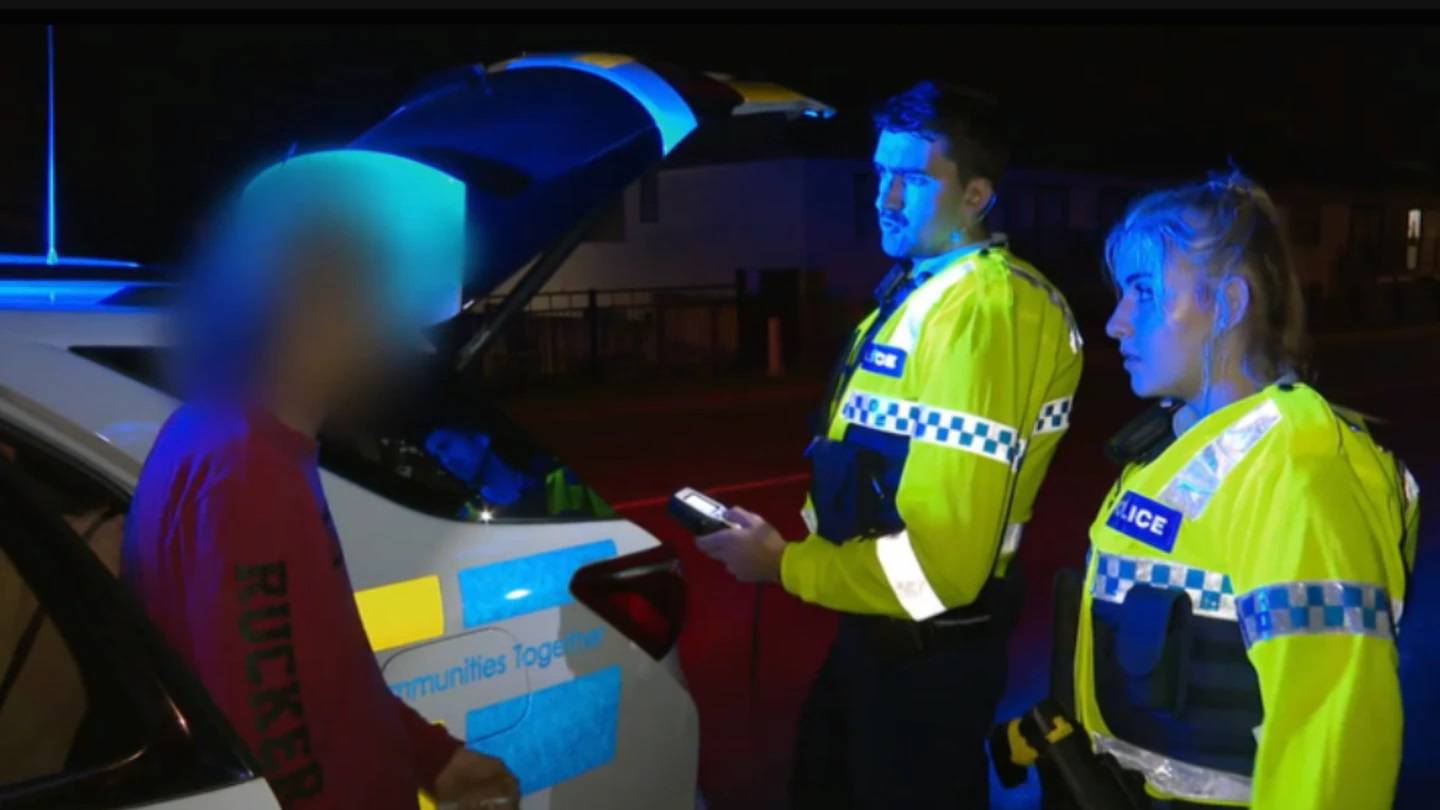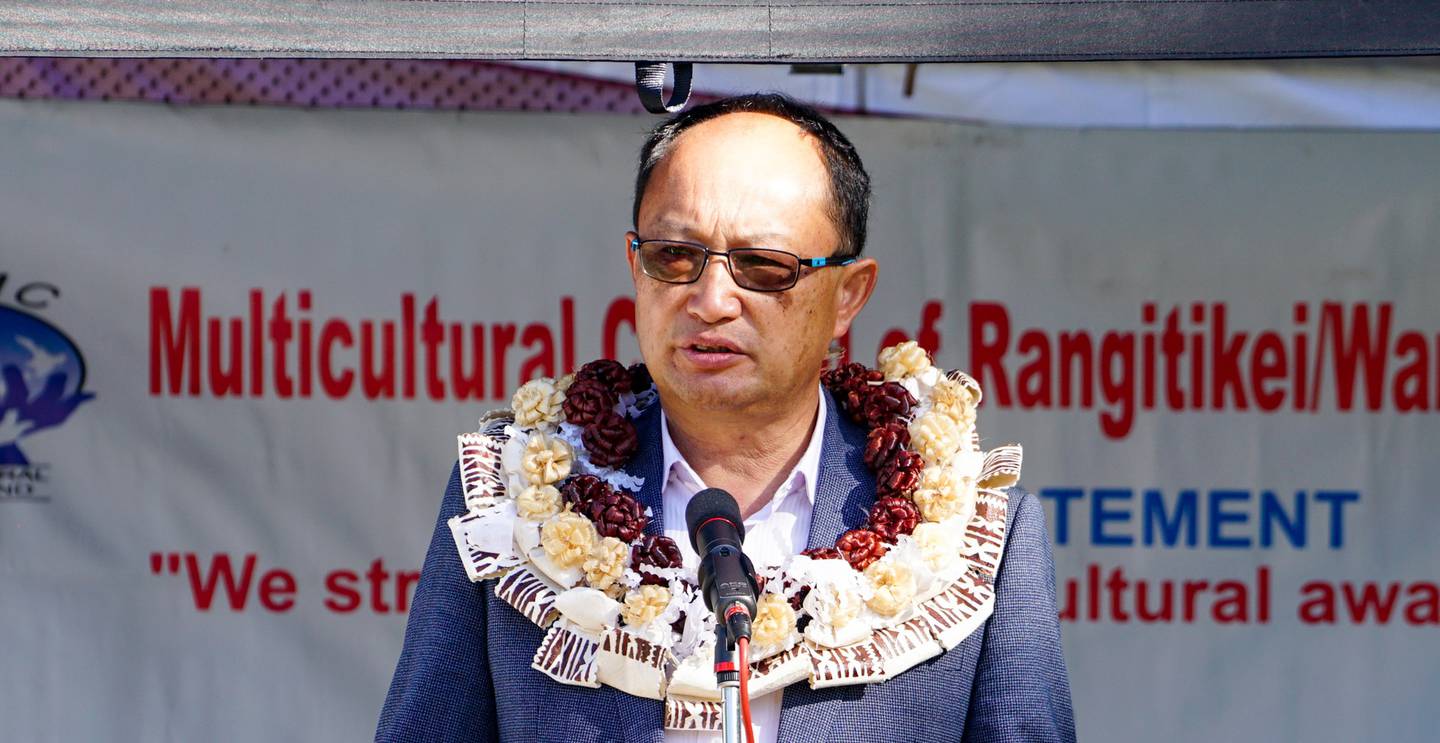
Speaking to Newstalk ZB's Mike Hosking this morning, Foon said the show did "target more brown people than white people so therefore it is racist".
Yesterday, Auckland councillor Efeso Collins called on TVNZ to scrap the reality show over what he says are racist stereotypes.
The show, which airs on Thursday nights, has run for 28 seasons. But Efeso Collins said it feeds on stereotypes - particularly of young brown men being brutish.
"I think if you look across the world, the fact that the US has dropped shows like Cops, which are all these chewing gum TV shows, that do nothing but you chew on something, get some flavour out of them, and then you spit them out," he told RNZ.

Hosking asked Foon whether the show deliberately targeted Māori and Pasifika, or simply reflected the reality of policing.
Foon cited evidence that Māori and Pasifika were overwhelmingly more likely to be subject to force from the police, such as use of dogs and Tasers.
The 2019 Tactical Options Report from police revealed that on a per capita basis Māori were 7.2 more likely than Pākehā to be on the receiving end of such force including OC (pepper) spray, empty hand tactics, Taser and firearms.
It found Māori were nearly nine times more likely than Pākehā to experience Taser deployment per capita, with over half of all Taser discharges directed at Māori, the vast majority (71%) males aged between 17 and 40 years.
Asked if the statistics he cited reflected more on the actions of those being arrested, Foon held firm.
"The police are racist," he said.
He also defended the show, saying Ten 7 was a "good programme" that helped communities to solve crime but argued that they need to "proportionalise the filming of brown people".
Asked if a quota system would work, Foon agreed.
Earlier, Efeso Collins appeared on ZB's Early Edition to expand on his earlier comments.
He said that promotion of the show focused on young brown people and invited the audience to watch their encounters with the police for their entertainment.
He said that his work in the South Auckland community showed the value of working with the police and that the show didn't play a part in that.
"Let's show the New Zealand we're becoming today.
"If we're just putting out stuff that follows the Facebook algorithm of reinforcing what we already believe then we're not getting a true picture of New Zealand, a diverse New Zealand with a range of cultures and languages and it's time now for all of that representation to be shown on TV."

Former host defends show
Former Police Ten 7 host Graham Bell has spoken out in defence of the show, arguing that critics should examine the causes of crime instead.
Bell spoke to Newstalk ZB's Kerre McIvor this morning after Auckland councillor Efeso Collins made the public call for TVNZ to stop broadcasting the highly rating reality show.
Collins said it feeds on racial stereotypes of young brown men being brutish and described it as a "chewing gum TV show".
"Crime and all its uncomfortable and unfortunate truths are not going to disappear if they get rid of Ten 7, are they?" Bell, who hosted the programme for 12 years and was a senior police officer, told McIvor.
"We need to face and accept there is a problem instead of looking for ways to hide from it, that's my approach."
Asked by McIvor how the show decided on which criminals to feature, Bell replied: "The police don't select who they are looking for. The people who commit the crimes are the ones that select themselves to be sought."
"There is no bias towards any colour, race, creed or any other type of person. It's whoever is wanted today is who goes on the show. It's as simple as that."
Asked, based on his experience in the police, whether there was an inherent mistrust towards Māori and Pasifika, Bell replied: "It's very difficult not to develop a slight attitude to a group of people that are constantly offending."
"It's an unfortunate fact that certain sectors of our society are grossly over-represented in the crime statistics. I don't have the answer for that but cancelling a show like Police Ten 7 is not going to help."
Bell told McIvor: "Police work is tough. It requires courage and persistence in the face of a lot of criticism. This sort of criticism that is floating around at the moment is far from helpful, you have to say."
"I would argue that Mr Collins is approaching this from the wrong end. Perhaps he should be looking at why we've got this problem in our society.
"Does he want police to ignore crime if it is committed by brown people?"
Bell said New Zealand needs to focus on the social drivers of crime and ignoring the over-representation of Māori and Pasifika in crime statistics is "just ignoring cold, hard uncomfortable truths".
"There have been generations of familial inadequacies by sectors of our society that have created a lack of aspiration, a lack of self-worth, a lack of self-respect and we see it everywhere," Bell said.
"It's not only in crime, we see it right through society. There are sectors of our society who are over-represented in our statistics and everybody in society would be better off if that were not the case".
NZME has approached TVNZ and Police Ten 7 producers Screentime for comment on this story.












